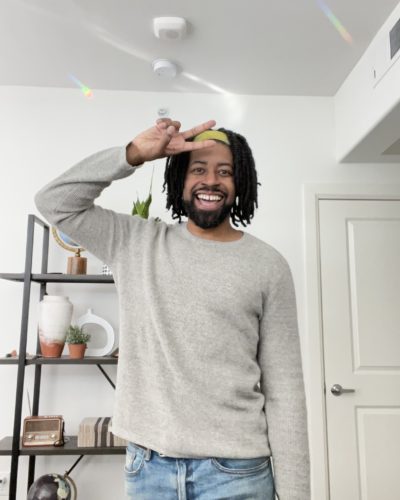Over the past 15 years, I’ve worn every hat you can imagine as a creative professional. With job titles like graphic and web designer, social media manager, creative director, director of marketing, photographer, illustrator, and communications manager… if there was an opportunity to flex my creative muscles, I jumped at the opportunity.
And through the combination of personal projects, life experience, and meaningful self-work, I have my fair share of career advice for creative professionals. In this blog post, I’m going to give you nine pieces of advice to help you stay inspired, focused, and productive in your creative career.
1. Success can have so many different meanings for creative professionals. You get to define what success means to you.
Don’t chase after someone else’s dream. Instead establish what success means for you and build a life you love. That might mean letting go of specific job titles or focusing less on breaking six figures, if you prefer to prioritize work/life balance.
2. Eat the frog first thing every single day.
Instead of procrastinating, do the one task you’re dreading first so you can get out of the way. This frees up mental space and allows you to be more creative for the rest of the day.
3. No one will advocate for you if you aren’t willing to advocate for yourself.
It’s easy to assume that people are hyper-aware of your interests, needs, and expectations. But you have to remember that your coworkers and manager are dealing with their own set of goals and objectives.
It’s your job to remind them of the good work that you’re doing, the growth that you’ve made, and your goals for the future.
4. You have to have an emergency savings fund… ideally in a high-yield account.
In the creative industry, even the most secure jobs can be volatile. Save money for rainy days so that you don’t have the financial pressure of being without a consistent salary if you’re laid off. Once you’ve saved enough, you can consider creating a separate savings account to take a sabbatical.
5. No one can actually multitask – they lying.
The best way to complete a project effectively and efficiently is to give it your full focus. Make a to-do list at the beginning of the week and take projects one step at a time. This will lead to a higher quality of work overall and a defined sense of actively getting things done.
6. Work hard enough to get the job done well, but not so hard that it directly affects your health or your relationships.
One of the challenges of working in your zone of genius is deciding when to stop working. It’s important to create things that your clients will love and that you’re proud of, but sometimes pushing for perfection is a waste of energy and time.
Make sure to prioritize all the aspects of your life that matter: health, fitness, quality time with friends and family, self-care, and hobbies.
7. Always ask for $5-10,000 more than what they offered.
After multiple rounds of interviews, it’s easy to just be happy that you got a new creative job. But you could be leaving money on the table if you’re not negotiating for more pay when you get the offer. It’s always worth countering the offer to see if there’s some wiggle room in the budget.
8. Make time for creative exploration in your creative process.
With a demanding full-time creative job, it can be hard to make time for creative exploration. With tight deadlines and lots of projects, you have to carve out time to continue to grow in your creative profession.
Take time to create just because you want to create. Watch tutorials. Go to conferences. Connect with like-minded creatives. Inspiration is something you have to continually seek, even if it means doing it when you’re not on the clock.
9. If no one will hire you to do the work that you want to do, you can make it your side hustle.
Sometimes the only way you can actually build experience is to commit to learning a new skill on your own time. This is the beauty and the challenge of being a creative professional. You need experience to get the job, but often times in order to get experience, you have to start on your own.
If you’re trying to break into a new field, build new portfolio pieces that connect with the work you’re looking for. Once you have a portfolio, search for contract work or create self-initiated projects that help you become better at your craft.



